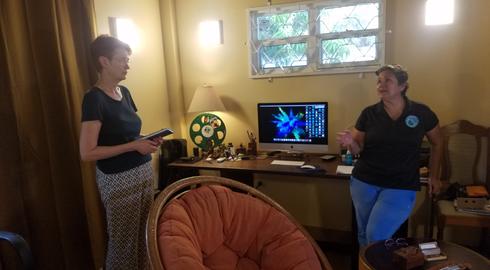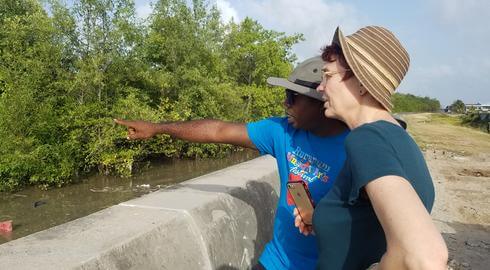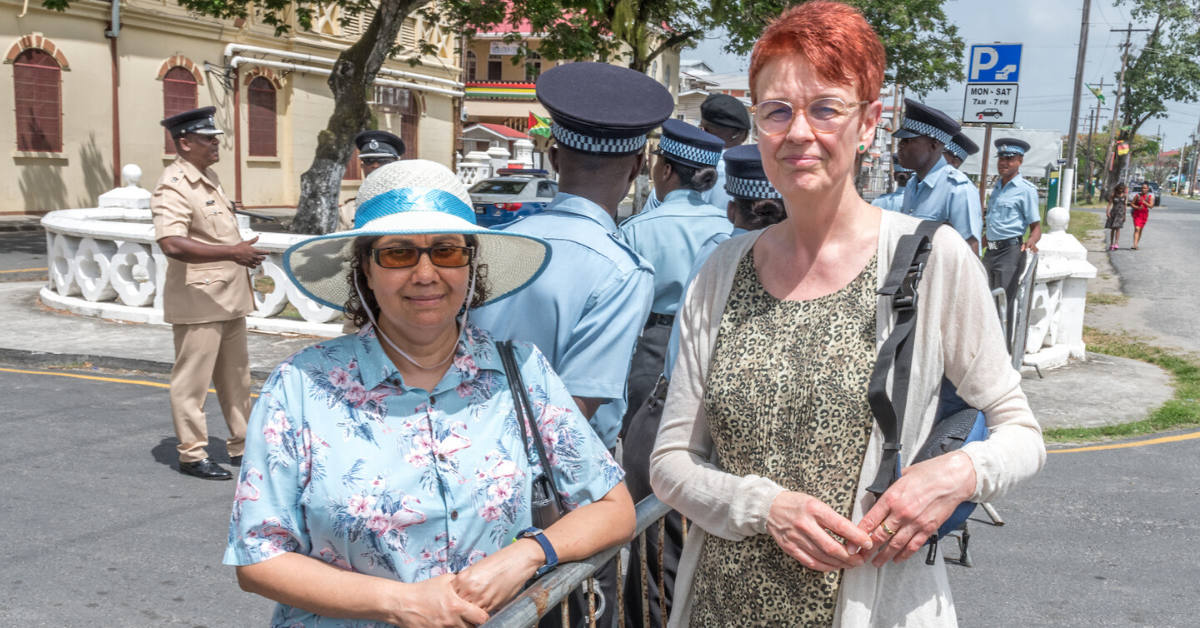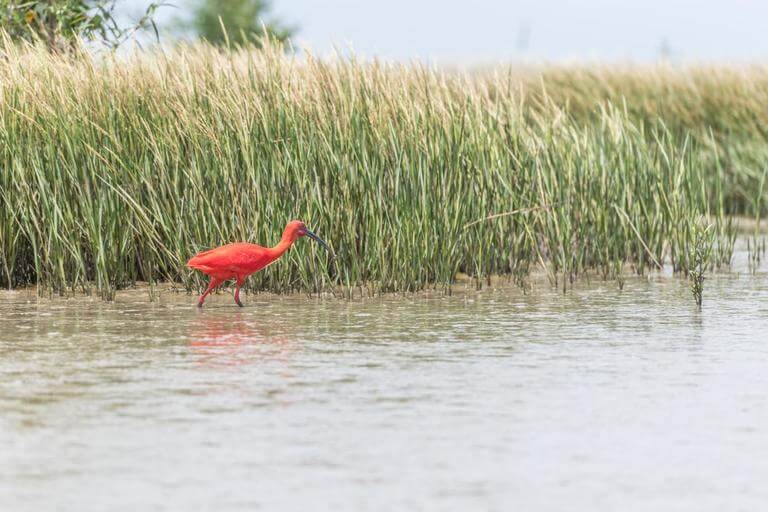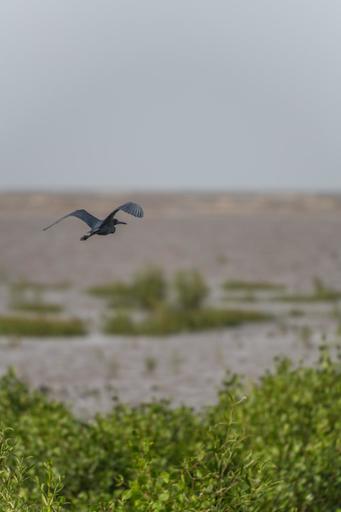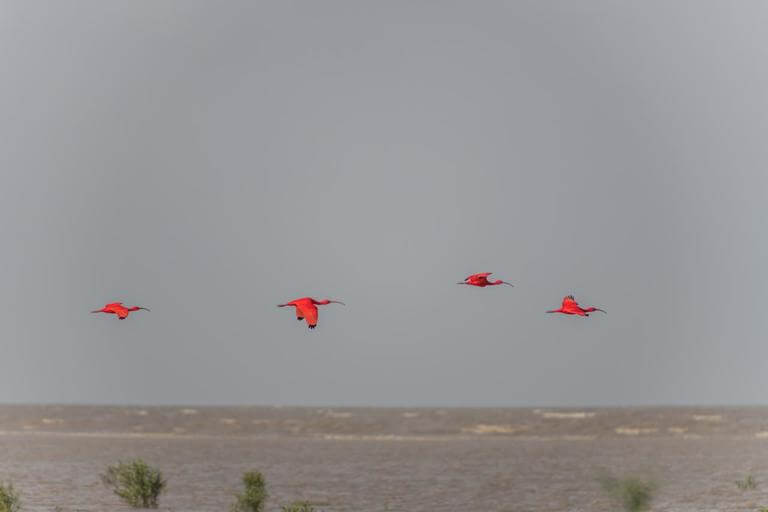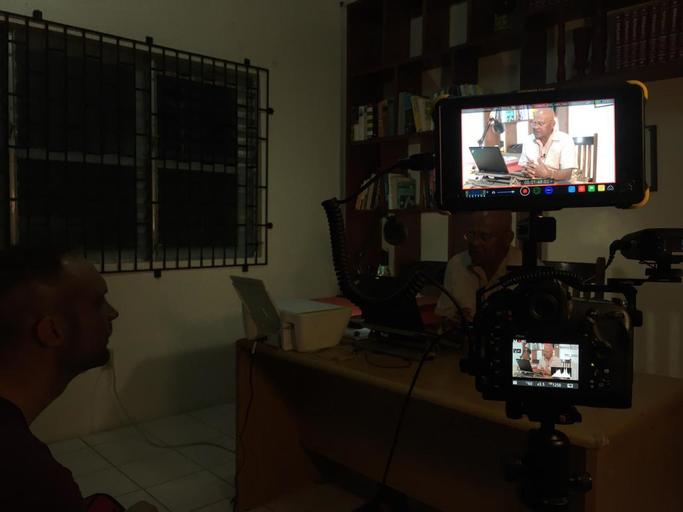Today begins with an exciting interview in Annette Arjoon-Martins’ house. As a professional pilot, she discovered her passion for protecting the coast. She founded the “Marine Conservation Society (2000) and has ensured that the 145 kilometre “Shell Beach” was placed under conservation protection in 2011. By the way, it’s the only area along the coast. This is where four highly threatened sea turtle species come to lay their eggs: Leatherback, Hawksbill, Olive Ridley and Green Turtles.
Annette tells us that since 2012 the wind has become stronger and the waves higher. The indigenous community of the Arawaks, who used to live off turtle meat and eggs, now protects these impressive animals. Unfortunately, a huge flood destroyed the visitors centre in 2017 and even worse, caused the destruction of large parts of the beach. It has since been closed to visitors and 208 of the indigenous “Amerindians” have had to evacuate their settlement. Relocation to a slightly larger village hasn’t been successful. Without the open access to the sea and without any land of their own, their resettlement has meant a sudden removal of a centuries-old livelihood. They have become “climate refugees”, as Annette describes them.
